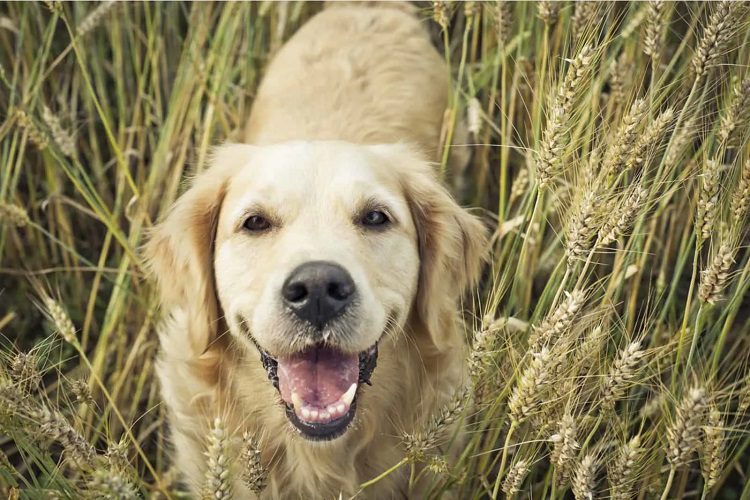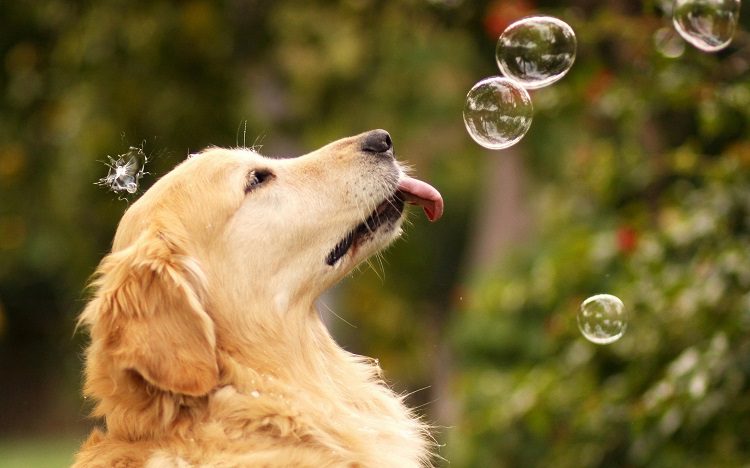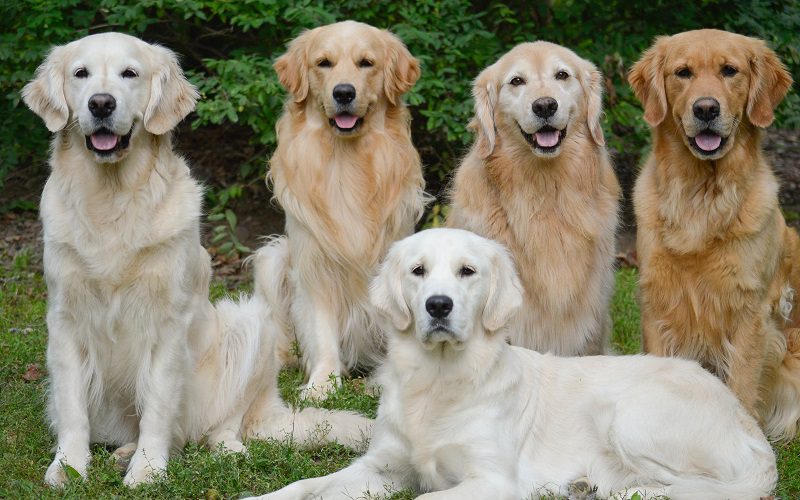Last Updated: 9 months ago
During the early portion of the 1800s, games were abounding in England and Scotland.
This made hunting both a practical way to obtain food, and a sport.
The prominence of retrievers developed due to the desire for hunters to have a medium-sized dog that would perform well while in the wild and be able to assist with hunts for both waterfowl and upland game.
The person who is responsible for the original popularity of the Golden Retriever is Lord Tweedmouth.
He has breeding records dated from 1835 to 1890 that show the Golden he was aiming for was a talented retriever with a superior nose who would be attentive to their humans while hunting.
The breeds that were created by Tweedmouth were not recognized by the Kennel Club in England until 1911 when they were classified as a Retriever – in Golden or Yellow. In 1920, the breed was officially named the Golden Retriever.
Common Characteristics Of The Golden Retriever

The Golden Retriever has a well-balanced body that is deep through the chest. It has a strong, muscular build and the males typically grow to 23 to 24 inches tall and weigh between 65 and 75 pounds.
Females are typically 21.5 to 22.5 inches tall and between 55 and 65 pounds. In most cases, your Golden Retriever will reach its full height by the time it is a year old and their mature weight by the time they reach two.
Golden Retriever Health Issues

According to a study of 1500 Golden Retrievers that was conducted by the Golden Retriever Club, one of every two Golden Retrievers will develop some type of cancer.
This most common type is Hemangiosarcoma, followed by lymphosarcoma, osteosarcoma, and mastocytoma. In this study, a total of 65 percent of the Goldens who died between the ages of three and eight was because of cancer, and 70 percent that died between the ages of 8 to 13.
Another health issue with this breed is skin disease. The most common problem is that this dog breed has allergies, which can result in itchy skin and may even lead to bacterial skin infections.
Some of the other types of skin disease that a Golden Retriever can suffer from include lick granuloma, sebaceous adenitis, and seborrhea.
Other issues in the Golden Retriever include:
- Hip and elbow dysplasia
- Loose knees
- Cruciate ligament rupture
- Heart disease
Golden Retriever Size

The Golden Retriever is considered to be a medium-sized dog. The males will typically grow to be between 22 and 24 inches while females will be a bit shorter, from 20 to 22 inches.
The males will weigh between 60 and 80 pounds and females, again, a bit lighter, at 55 to 70 pounds.
These dogs are ideal for hunting companions and even protection when they are trained properly.
Golden Retriever Personality Traits

The calm and sweet nature is considered to be the hallmark of this breed. The Golden was originally bred to work alongside people and is extremely eager to please their owners.
While they are hard wired with a great disposition, much like any other dog, they have to be well-raised and properly trained to make the most of their heritage.
Much like any other dog, the Golden Retriever needs to be socialized early on. Being exposed to a number of different sounds, experiences, sights and people when their young is quite beneficial.
With proper socialization, the Golden puppy will grow up to be a well-rounded family pet.
Care Instructions For Golden Retrievers

It is important to provide proper care for your Golden Retriever so they can live a long, healthy, and happy life. In this care routine, there are activities that should be done daily, weekly, quarterly, and annually. These include:
- Daily care: Provide nutritious food and clean, safe water. Be sure they get plenty of exercises and check their body for anything unusual.
- Weekly care: Inspect the dog’s ears, oral health, and eyes. Be sure to groom them and care for their nails.
- Quarterly care: Bath your dog every one to two weeks with a quality shampoo. Also, schedule visits to the professional veterinarian and groomer as needed.
- Yearly care: Regular vaccinations are a must to keep your dog healthy.
Common Coat Colors

Golden Retrievers have three basic coat colors – dark golden, gold and light golden. Hence the name, these dogs are all gold in color, to some degree.
Temperament

The Golden Retriever has a friendly temperament and a striking golden color, which makes this dog beautiful to behold, as well as a pure job to own.
While the Golden Retriever can usually adapt to any type of living situation, they still require quite a bit of exercise each day to help and maintain their mental and physical fitness. It is important that you never allow the Golden to run free.
The Golden Retriever should have a balance of time indoors with people and outside taking walks, or playing in a fenced in yard.
If the dog does not receive company or adequate exercise, it may begin to display behavior that is atypical of the well-cared for and loved family pet.
It is important to utilize obedience training for the pet, which will make them a better companion and help to create a strong bond between the owner and the dog. The Golden Retriever breed of dog wants nothing more than to be able to continue pleasing their owners.
Conclusion
The Golden Retriever makes a great family dog. It has a friendly temperament and can be easily trained when you take the time to do so.
When it comes to dogs, this Golden Retriever is one of the most popular breeds, due to their temperament and personality. If you hunt, they can also be the ideal companion.
Take the time to learn about their care requirements to ensure this is the dog that is right for you and for your family, which will ensure you can provide the dog with a happy and healthy life.
Resources:



